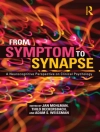People with bipolar disorder are particularly vulnerable to anxiety and intrusive mental imagery, which can contribute to mood swings and a heightened risk for relapse. This book presents a novel brief treatment that focuses on working with mental images to reduce distress and enhance mood stability. Grounded in cognitive-behavioral therapy (CBT), the book provides therapists with tested techniques for formulating individualized treatment targets, using metacognitive strategies to reduce the power of images, rescripting problematic images, and building adaptive positive images. User-friendly instructions for assessment and intervention include case examples, sample scripts, and troubleshooting tips. In a large-size format for easy photocopying, the book includes 19 reproducible handouts and session agendas. Purchasers get access to a Web page where they can download and print the reproducible materials.
Inhaltsverzeichnis
I. Introduction
1. Introduction to Bipolar Disorder
2. Introduction to Mental Imagery and the Development of MAPP
II. Overarching Principles and Basic Techniques
3. The MAPP Therapeutic Ethos
4. Mood Monitoring, “Blip” Management, and Being Kind to Oneself
5. Overcoming Barriers to Therapy: Chair Work
III. Assessment and Treatment
6. MAPP Assessment: “Mapping”
7. Microformulation of a Particular Mental Image, and Psychoeducation for Clients
8. Metacognitive Techniques to Reduce the Power of the Image
9. Imagery Rescripting Techniques
10. Promoting Positive Imagery
11. Introducing Imagery-Competing Tasks
12. Consolidation Sessions: Making Video Blueprints
13. Final Comments
Afterword, Guy Goodwin
Appendices
References
Index
Über den Autor
Emily A. Holmes, Ph D, DClin Psych, is Professor in the Department of Women’s and Children’s Health at Uppsala University in Uppsala, Sweden, where she leads the PERCEPT–Mental Imagery and Mental Health Program. She was formerly Professor at the University of Oxford, United Kingdom. Her research and publications focus on mental imagery and emotion across psychological disorders. She is a clinical psychologist with a Ph D in cognitive neuroscience. Dr. Holmes serves on the Board of Trustees of the international mental health research charity MQ: Transforming Mental Health. She is the recipient of awards from the American Psychological Association, the German Alexander von Humboldt Foundation, and Uppsala University, among other international honors. Dr. Holmes is a Fellow of the Royal Swedish Academy of Sciences and an Honorary Fellow of the Royal Academy of Arts in the United Kingdom. Her research is underpinned by a core interest in mental health science and the translation of basic findings to create innovations to improve psychological treatments.
Susie A. Hales, DClin Psy, is Research Tutor and Clinical Psychologist at the Oxford Institute of Clinical Psychology Training, University of Oxford, and Oxford Health NHS Foundation Trust, United Kingdom. Her research focuses on mental imagery processes and treatment innovation for mood disorders. Dr. Hales has published papers on psychological aspects of bipolar disorder and suicidality, and on novel ways of delivering cognitive therapy. She is active in the supervision and training of mental health professionals in a range of research and clinical competencies, with a particular emphasis on the provision of imagery-focused cognitive therapy training workshops.
Kerry Young, Dip Clin Psy, is Consultant Clinical Psychologist and Clinical Lead of the Woodfield Trauma Service in London, United Kingdom. She is also Honorary Lecturer in Clinical Psychology at University College London and a clinician at the Oxford Rose Clinic. Dr. Young is an expert in mental imagery techniques, particularly imagery rescripting and its use with clients who have experienced complex trauma. She has published in the area of trauma and mental imagery.
Martina Di Simplicio, MD, Ph D, is Clinical Senior Lecturer in Psychiatry at the Centre for Psychiatry, Imperial College London, United Kingdom, and Honorary Consultant Psychiatrist in the West London NHS Trust. Her research focuses on understanding the cognitive mechanisms that underlie psychopathology and that drive successful treatment of mental disorders. Dr. Di Simplicio investigates the role of mental imagery in regulating emotions, with the aim of developing innovative digital interventions for young people who experience mood instability and self-harm. She has published on emotion processing, neuroimaging, psychopharmacology, and mental imagery.












